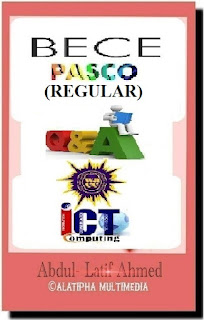SKY DISSENTING: Why Afenyo-Markin’s Shakespeare Quote Was Not Useless
SKY DISSENTING: BLOODY INSTRUCTIONS, TAUGHT IN PARLIAMENT — WHY AFENYO-MARKIN’S USE OF SHAKESPEARE WASN’T “USELESS”
Respectfully,
A recent television discussion saw veteran and distinguished journalist Kwesi Pratt dismiss Minority Leader Alexander Afenyo-Markin’s use of Shakespeare during Justice Paul Baffoe-Bonnie’s vetting as “useless.”
While NPP MP Isaac Boamah-Nyarko found the characterization “harsh,” he could not articulate the quote’s significance. Tellingly, host Moro Awudu—a colleague I greatly respect—also struggled to explain its relevance, mirroring the confusion of many Ghanaians. This exchange was a microcosm of a national conversation, with many Ghanaians asking: why quote Shakespeare in Parliament?
The answer, to my mind, is both simple and profound.
When Justice Baffoe-Bonnie appeared before Parliament’s Appointments Committee, and even as he took his oath of office at the Jubilee House early this evening, seven court cases were pending, challenging whether Chief Justice Gertrude Torkornoo’s removal was constitutional. If her removal was unconstitutional, there was no vacancy. Without a vacancy, vetting a replacement made no sense.
With their objections dismissed days earlier, the Minority Leader made a final plea. As the entire nation watched, he turned to Macbeth, using its timeless lesson as a last resort where formal procedure had failed.
A crucial nuance elevates this from a mere literary reference to a masterful political argument: the Minority Leader did not quote the play's most famous warning about consequences. He bypassed the lines, "we but teach / Bloody instructions, which, being taught, return / To plague th'inventor."
Instead, he leapt to Macbeth's preceding soliloquy, where the tragic hero articulates why the act is wrong. He quoted the conscience before the curse:
“First, as I am his kinsman and his subject,
Strong both against the deed; then, as his host,
Who should against his murderer shut the door,
Not bear the knife myself. Besides, this Duncan
Hath borne his faculties so meek, hath been
So clear in his great office, that his virtues
Will plead like angels, trumpet-tongued…”
This was not a warning of future retribution; it was a damning indictment of present transgression. By selecting this passage, the Minority Leader was performing a triple maneuver of profound rhetorical power:
First, he was holding up a mirror to the Majority, listing the sacred duties they were violating: their duty as representatives of the people (kinsmen and subjects), their duty as custodians of the state (hosts who must shut the door against murderers), and their duty to a Chief Justice of unimpeachable virtue.
Second, he exposed the naked motive. He concluded with the only spur left: “I have no spur / To prick the sides of my intent, but only / Vaulting ambition.” The accusation was precise and inescapable: you are not acting on legal principle or constitutional necessity, but on pure, unadorned political ambition.
Finally, he demonstrated that Shakespeare’s true power lies not (necessarily) in predicting downfall, but in diagnosing the moral crisis that precedes it. The “bloody instructions” are the symptom; the suppression of conscience for ambition is the disease. His opening remarks resonated because he used literature not to decorate a point, but to deliver the most severe judgment possible: you know this is wrong, and you are doing it anyway.
“First, as I am his kinsman and his subject,
Strong both against the deed; then, as his host,
Who should against his murderer shut the door,
Not bear the knife myself. Besides, this Duncan
Hath borne his faculties so meek, hath been
So clear in his great office, that his virtues
Will plead like angels, trumpet-tongued…”
A Ceremony of Forgetting
In a moment of almost Shakespearean irony, the grim prophecy of "vaulting ambition" was, somewhat, fulfilled not with a tragedy, but a farce early this evening. The swearing-in ceremony of Justice Baffoe-Bonnie, a man of enviable pedigree on the Ghanaian bench, was halted by a visible, frantic search for the cross upon which the Chief Justice wished to take his oath. As cameras captured worried faces, whispering and then silence that grew heavy, a disc jockey, perhaps unwittingly, filled the constitutional vacuum with a Ghanaian melody whose lyrics proclaimed, “what God said shall certainly come to pass.” When the cross could not be found, President Mahama addressed the shocking breach with the following words: “Sorry for that embarrassing incident. Justice prefers to swear by the cross but somebody didn’t make sure that the cross was available. But we carry our bibles on our phones now so they thought he would swear by the phone bible...” A brief, nervous laughter followed. Eventually, the cross arrived, but by then the damage was already done.
In my respectful view, for all his distinguished service to our nation as a jurist, Justice Baffoe-Bonnie deserved a ceremony of solemn honor, not this public “embarrassment.” This was no mere logistical failure. The President’s justification—substituting the chosen symbol of conscience for a digital convenience—became a perfect allegory for the entire affair. It laid bare the core truth: this was an act of rushed ambition, where sacred duty was downgraded to a technicality, and the solemnity of a constitutional moment was dissolved into improvisation and awkward laughter.
A Strategic Masterstroke, Not a Theatrical Showmanship
Last Monday’s use of Shakespeare by the Minority Leader was not elitist performance; it was a precise and devastating accusation. The Minority Leader was saying: You know this vetting is constitutionally questionable. You know seven court cases are pending. You know you should wait. But you’re doing it anyway because of political ambition. And this will come back to haunt you.
Its effectiveness was multifaceted:
- It Created an Indelible Memory. We are still talking about this quote. Articles like this are being written. The objection hasn’t been forgotten. If he had simply said “I object on constitutional grounds,” it would have been noted and forgotten by the close of Eyewitness News that evening. Shakespeare made it stick.
- It Elevated the Stakes. By comparing the vetting to Macbeth’s murder plot, the Minority Leader transformed a “procedural matter” into a constitutional crisis. He wasn’t saying “this is irregular.” He was saying “this is a grave violation with serious consequences.”
- It Made the Argument Accessible. Not everyone understands constitutional law or parliamentary procedure. But many educated Ghanaians studied Macbeth. Everyone knows the story: ambitious man does wrong despite knowing better, and it destroys him. The quote made a complex constitutional argument accessible.
- It Issued a Warning. Macbeth kills Duncan and loses everything—his peace, sanity, life. The play ends with his head on a spike. The Minority Leader was warning the Majority: This unconstitutional act will destroy those who perpetrate it, just as murder destroyed Macbeth. That’s not literature for its own sake. That’s political prophecy. We can only pray for the mercy of justice.
- It Created a Historical Record. Parliament isn’t just for today. Fifty years from now, when people read the records of this vetting, they’ll see the Minority Leader’s objection. They’ll see he warned them using one of literature’s most famous warnings about doing wrong despite knowing better. If the courts eventually rule Torkornoo’s removal was unconstitutional, as some believe they would, this quote will be remembered as a moment when someone stood up and said “this is wrong” in a way that couldn’t be ignored.
Why “Useless” Is the Wrong Word
Mr. Pratt is a widely respected journalist with decades of experience, a man whose pedigree I deeply admire. He is a colossus. But on this point, he’s wrong. And I say this with profound humility.
The quote wasn’t useless. It was precisely targeted.
“First, as I am his kinsman and his subject,
Strong both against the deed; then, as his host,
Who should against his murderer shut the door,
Not bear the knife myself. Besides, this Duncan
Hath borne his faculties so meek, hath been
So clear in his great office, that his virtues
Will plead like angels, trumpet-tongued…”
Consider what the Minority Leader faced: The Majority had the numbers. They were determined to proceed. Legal arguments had failed. Procedural objections had been casually overruled.
What do you do when you’ve lost every conventional battle defending the rule of law? You reach for the unconventional. You make your objection so profound, so memorable, so morally weighty that it cannot be dismissed today or decades hence as mere partisan politics.
You invoke Shakespeare—not to show off, but to elevate the moment to its actual constitutional importance.
The Legitimate Question of Language and Access
Let me address something important underlying the criticism: accessibility. Mr. Pratt stated this as part of his critique.
Ghana is multilingual. Millions speak Akan, Ewe, Ga, Dagbani, Hausa, and dozens of other languages as their first language. Many speak English as a second or third language. Some don’t speak English at all. Even among English speakers, Shakespearean English with its archaic phrases can be difficult.
This is real. This matters. It’s a fair point.
It follows, therefore, that when the Minority Leader quoted Shakespeare, he spoke a language that excluded many Ghanaians. A fisherman in Ketu, a farmer in Bunkpurugu, a trader in Makola Market—they didn’t study Macbeth. Arguably, the quote meant nothing to them directly.
So was Mr. Pratt partly right?
Here’s where we need nuance.
Parliament Has Multiple Audiences
Parliamentary proceedings serve different functions:
- For the parliamentary record: Creating a formal, documented objection that will stand in Hansard forever, primarily for lawyers, historians, and constitutional scholars examining this period.
- For the educated elite: Politicians, journalists, lawyers, academics following parliamentary proceedings closely. Many studied Shakespeare. For them, the reference was immediately clear and devastating.
- For the general public: This is where translation happens. The quote itself may not be accessible, but the discussion it generates is. We’re having this conversation because of that quote. Newspapers can explain it. TV shows debate it. It’s being broken down in Akan, Ewe, and Ga.
- For international observers: Ghana’s democracy is watched globally. When a parliamentary leader quotes Shakespeare to register what he considered a principled objection, it signals this is a serious constitutional matter, not political theater. This attention was evident when an international viewer, seeing a clip of the recitation, contacted me asking whether he used a teleprompter or quoted from memory—a question underscoring the act’s significance.
Thus, the Minority Leader’s audience was his fellow parliamentarians—lawyers and educated professionals—while deliberately crafting a moment demanding explanation to wider audiences, domestic and international.
The Role of Translators and Interpreters
This is where journalists, commentators, and analysts come in. Our job is to make parliamentary proceedings accessible.
When the Minority Leader (or any other Leader) quotes Shakespeare, our job isn’t to dismiss it as useless. Our job is to translate and explain what he meant.
Instead, Mr. Pratt called it useless. That’s where he failed—not as a journalist championing accessibility, but as one who gave up on making complex political communication accessible.
English, Shakespeare, and Our Colonial Inheritance
Let’s be honest: English isn’t our language. Shakespeare certainly isn’t. They’re inheritances from British colonialism. Our Parliament operates in English because the British designed it that way.
Some might argue using Shakespeare in Parliament is elitist, colonial, and inappropriate for an African nation that championed Pan Africanism.
I understand this argument. But it fundamentally misses something important.
We can’t change Parliament’s language overnight. Our Constitution is in English. Our laws are in English. Court proceedings are in English. Parliamentary debates are in English, though standing orders allow Ghanaian languages.
Given that reality, the question isn’t whether to use English in Parliament. The question is: When you use English, are you using it effectively?
To my mind, the Minority Leader used it effectively for his immediate audience. The failure isn’t his. The failure is ours—those who should translate parliamentary proceedings but instead dismiss what we don’t immediately understand as “useless.”
What Should Have Happened
Here’s what helpful commentary looks like:
Mr. Pratt could have said: “The Minority Leader quoted Shakespeare. Many won’t understand that reference, so let me explain. He quoted a story about a man who knows he’s doing wrong but does it anyway because of ambition, and it destroys him. The Minority Leader was saying this vetting is wrong, everyone knows it because of pending court cases, but they’re doing it anyway for political reasons. He’s warning it will end badly. That’s the Minority Leader’s view but, respectfully, I disagree with him...”
In all humility, that’s how you serve your audience. You don’t dismiss the complex as useless. You make it simple.
The Duty We Owe Our Democracy
The real question is not why Shakespeare was quoted, but why the connection was not immediately clear. When a leader quotes a play about a man knowingly committing a wrong for ambition, during a process challenged in seven separate court cases, the parallel is not merely literary—it is literal.
This incident, in my humble view, reveals a dangerous cynicism, where profound warnings are mistaken for pretension. The Minority Leader was not being literary; he was sounding an alarm.
This moment demands a new covenant in our public discourse:
- For our leaders: In the chamber, wield language with power and precision to defend our constitutional order. Before the people, speak with clarifying simplicity, embracing our native tongues to ensure every citizen is included. I myself often find that a proverb in my native Ewe conveys a truth that English cannot fully capture.
- For our commentators: Your mandate is to illuminate complexity, not to dismiss it. Your duty is to build a bridge of understanding for the public, not to burn it with the label of "useless."
Shakespeare wrote about power, ambition, conscience, and consequences. That’s why his work survives 400 years later. These themes are eternal because they’re true. To quote him in such a moment was to remind all of a timeless lesson: that those who teach bloody instructions will, in the end, be plagued by them.
It is a lesson we can only ignore at our peril. For failing to see this, and for failing in the fundamental duty of explanation, I must respectfully, but firmly, dissent.
“First, as I am his kinsman and his subject,
Strong both against the deed; then, as his host,
Who should against his murderer shut the door,
Not bear the knife myself. Besides, this Duncan
Hath borne his faculties so meek, hath been
So clear in his great office, that his virtues
Will plead like angels, trumpet-tongued…”
— rD.s
#HardLaw


.png)




























Comments
Post a Comment